
Cota is pleased to share our 2020-21 Annual Report with you! Fiscal 2020-21 was a year that required us to pivot to meet the challenges presented by a global pandemic, play an active role in health system transformation efforts, continue to expand our services to meet the needs of people in our community and reinvigorate our commitment to matters of diversity, equity and inclusion. While this annual report highlights some of our achievements, it simply cannot do justice in capturing tremendous efforts that our staff, leadership team, partners and collaborators exhibited during this most unprecedented of times.
In the wake of the COVID-19 pandemic, our Incident Command Team worked tirelessly with or service providers in order to maintain service delivery to our clients through the successful adoption of new safety protocols, personal protective equipment (PPE) distribution and, where appropriate, the delivery of virtual care alternatives.
While contending with the pandemic, Cota maintained active participation in Ontario’s health system transformation efforts, through our active involvement with seven of the approved Ontario Health Teams that now exist across Toronto. Our involvement with the Ontario Health Teams resulted in us contributing to planning efforts that have set the foundation enhanced collaboration, integration and coordination of Toronto’s health care services in the future. It also resulted in Cota realigning resources in order to extend our existing Access to Resources and Community Services (ARCS) program, in collaboration with CMHA Toronto and Humber River Hospital (HRH), to better meet the needs of HRH inpatients as they transition back to the community, as a new North Western Toronto OHT initiative.
We also successfully implemented over 100 net new affordable and supportive housing options for people in need within our community. This was achieved through the official opening of a nine unit rooming house in Parkdale and as a result of our collaboration with The Neighbourhood Group in City’s Phase 1 Modular Housing Initiative.
Finally, the events surrounding the murder of George Floyd and the ongoing injustices that we see occurring in society everyday resulted in Cota reaffirming its commitment to diversity, equity and inclusion for all. Our work on this front over this past year has involved, but not been limited to, the recruitment of a contracted Diversity and Equity Officer to guide a review of our internal policies/practices, the establishment of an internal Task Force and subsequently a standing Diversity, Equity and Inclusion (DEI) Committee, training for staff, implementation of open forums for discussion and enhanced awareness building through internal communications.
On behalf of the Board of Directors we would like to like to extend our sincere gratitude to our frontline service providers, students, volunteers, the Cota leadership team and to our many partners for another very successful year and for your ongoing efforts as we continue to find innovative ways to meet the needs of people in our community, while contending with COVID-19.
Lily Yang, Board President
Paul Bruce,
CEO
Throughout the pandemic Cota has invested a great deal of effort to ensure that the clients we serve continue to benefit from our support. Our Incident Command Team has worked tirelessly so that we could develop and implement necessary safety protocols for staff and clients, acquire a steady supply of Personal Protective Equipment (PPE), adopt new technology, orchestrate staffing redeployment measures and, as a result, maintain full service capacity in our high-support supportive housing settings and modified means of service delivery in many of our other program areas.
Due to physical distancing requirements, our case management and non-site based supportive housing services were offered through virtual means (e.g., telephone check-ins and/or via Zoom Healthcare) while maintaining an ability to offer in-person assistance to individuals experiencing urgent needs.
In addition, we successfully implemented a Cota Support Line available to all clients which offered accessible telephone support on a wide range of client concerns from April 2020 to March 31, 2021. We also provided online peer support groups, a therapeutic writing group, substance use group and an anger management group.
The introduction of restrictive measures taken to reduce the spread of COVID-19 had negative health impacts on many people in society, including those who may live with substance use challenges. Unfortunately, these measures, in some instances, reduced access to services and social supports and, when combined with increases in illicit drug toxicity, contributed to an increase in substance use related deaths during the pandemic.
In recognition of this Cota made it a priority to improve our harm reduction practices, beginning with the development and adoption of Harm Reduction Conceptual Model. This included ensuring that our staff are trained in harm reduction approaches, have access to Naloxone kits and know how to respond to an overdose situation.
We are also made great efforts to create open and accepting environments in our site-based supportive housing settings so that tenants receive reminders about safe use and know that harm reduction supplies are available on site and that staff can offer assistance in times of need. We have developed visual reminders of these supports which are now posted at each of our sites.
The homelessness and affordable housing crisis in Toronto has been exacerbated by COVID-19. We see evidence of this in the encampments that have emerged across the city. Cota remains deeply committed to addressing this crisis because it affects so many of the people we serve. We also recognize that having a safe, affordable place to live and access to supports in our lives are essential to health, wellness for all and personal recovery for our most vulnerable citizens who have experienced episodes of chronic homelessness. It is for these reasons that Cota remains an active and contributing member of the Toronto Alliance to End Homelessness (TAEH).
Our most significant undertakings in 2020-21 (beyond maintaining existing service delivery during a global pandemic) resulted in us implementing support services within the City’s two Phase 1 Modular Housing sites and completing renovations to a nine (9) unit rooming house property in Parkdale which Cota acquired through the generous support of the City of Toronto’s Ontario Housing Priorities Initiative (OPHI).
It is a well known fact that Toronto had an affordable and supportive housing crisis prior to the onset of the pandemic. In recognition of this the City of Toronto created the HousingTO 2020-2030 Action Plan. This plan acknowledged that safe and affordable housing is a key social determinant of health and wellbeing and, amongst other measures, set an aggressive target for 18,000 new supportive home approvals for vulnerable residents, including people who are homeless or at risk of being homeless, by 2030.
On April 30, 2020 City Council approved Toronto’s first ever affordable housing sites to be developed at 11 Macey Ave. and 150 Harrison (now 321 Dovercourt Rd.), using modular construction methods through the Phase 1 – Modular Housing Initiative. Combined, these two sites would offer 100 units of affordable housing and supports to people exiting chronic homelessness.
Toronto’s Housing Secretariat issued a Request for Proposals (RFP) for an organization(s) to operate the sites as affordable housing and requested that they partner with a service provider to offer 24/7 on-site supports to tenants. Cota and The Neighbourhood Group (TNG) elected to collaborate in developing a joint submission whereby TNG would be the housing operator and Cota would be the on-site support service provider at both sites. We were selected as the successful proponents.
With the support of the Ministry of Health, the Central LHIN (now Ontario Health Central), the Toronto Central LHIN (now Ontario Health Toronto) and the Ministry of Community and Social Services, Cota was able to align approximately $3M of support services funding to the sites. In December 2020, a mere eight months after council approval, 11 Macey Ave. opened, followed by 321 Dovercourt Rd. in January, 2021.
Cota applauds the City in creating new permanent affordable and supportive housing, using this modular housing construction. It is a viable way to introduce affordable rental accommodation, in a timely manner, for people in need within our community. We are optimistic that this initiative will be successful in assisting people to transition from homelessness to housing stability thereby contributing to their ability to thrive and reach their full potential.
“Supportive housing combines affordable housing with coordinated services, and can truly make a difference in peoples’ lives. The pandemic has further highlighted the need for supportive housing, and I am very pleased to be working with The Neighbourhood Group and COTA Health to provide this as part of our modular housing initiative. Leveraging the experience of these two organizations will be critical to creating positive housing outcomes for our residents.”
Cota’s new property in Parkdale, will offer deeply affordable housing to nine (9) people living with mental health challenges who have experienced homelessness. Internal renovations involved a complete redesign of the lower level and the installation of two kitchens. Seven (7) of the rooms have ensuite bathrooms while the remaining two (2) share a bathroom. The renovations were substantially completed in March, 2021 enabling occupancy to begin in April, 2021.
The homelessness and affordable housing crisis in Toronto has been exacerbated by COVID-19. We see evidence of this in the encampments that have emerged across the city. Cota remains deeply committed to addressing this crisis because it affects so many of the people we serve. We also recognize that having a safe, affordable place to live and access to supports in our lives are essential to health, wellness for all and personal recovery for our most vulnerable citizens who have experienced episodes of chronic homelessness. It is for these reasons that Cota remains an active and contributing member of the Toronto Alliance to End Homelessness (TAEH).
Our most significant undertakings in 2020-21 (beyond maintaining existing service delivery during a global pandemic) resulted in us implementing support services within the City’s two Phase 1 Modular Housing sites and completing renovations to a nine (9) unit rooming house property in Parkdale which Cota acquired through the generous support of the City of Toronto’s Ontario Housing Priorities Initiative (OPHI).
It is a well known fact that Toronto had an affordable and supportive housing crisis prior to the onset of the pandemic. In recognition of this the City of Toronto created the HousingTO 2020-2030 Action Plan. This plan acknowledged that safe and affordable housing is a key social determinant of health and wellbeing and, amongst other measures, set an aggressive target for 18,000 new supportive home approvals for vulnerable residents, including people who are homeless or at risk of being homeless, by 2030.
On April 30, 2020 City Council approved Toronto’s first ever affordable housing sites to be developed at 11 Macey Ave. and 150 Harrison (now 321 Dovercourt Rd.), using modular construction methods through the Phase 1 – Modular Housing Initiative. Combined, these two sites would offer 100 units of affordable housing and supports to people exiting chronic homelessness.
Toronto’s Housing Secretariat issued a Request for Proposals (RFP) for an organization(s) to operate the sites as affordable housing and requested that they partner with a service provider to offer 24/7 on-site supports to tenants. Cota and The Neighbourhood Group (TNG) elected to collaborate in developing a joint submission whereby TNG would be the housing operator and Cota would be the on-site support service provider at both sites. We were selected as the successful proponents.
With the support of the Ministry of Health, the Central LHIN (now Ontario Health Central), the Toronto Central LHIN (now Ontario Health Toronto) and the Ministry of Community and Social Services, Cota was able to align approximately $3M of support services funding to the sites. In December 2020, a mere eight months after council approval, 11 Macey Ave. opened, followed by 321 Dovercourt Rd. in January, 2021.
Cota applauds the City in creating new permanent affordable and supportive housing, using this modular housing construction. It is a viable way to introduce affordable rental accommodation, in a timely manner, for people in need within our community. We are optimistic that this initiative will be successful in assisting people to transition from homelessness to housing stability thereby contributing to their ability to thrive and reach their full potential.
“Supportive housing combines affordable housing with coordinated services, and can truly make a difference in peoples’ lives. The pandemic has further highlighted the need for supportive housing, and I am very pleased to be working with The Neighbourhood Group and COTA Health to provide this as part of our modular housing initiative. Leveraging the experience of these two organizations will be critical to creating positive housing outcomes for our residents.”
Cota’s new property in Parkdale, will offer deeply affordable housing to nine (9) people living with mental health challenges who have experienced homelessness. Internal renovations involved a complete redesign of the lower level and the installation of two kitchens. Seven (7) of the rooms have ensuite bathrooms while the remaining two (2) share a bathroom. The renovations were substantially completed in March, 2021 enabling occupancy to begin in April, 2021.
Cota has spent a considerable amount of time participating in the evolution of seven of the Ontario Health Teams (OHTs) in Toronto. To date, the majority of these contributions have focused on the foundational underpinnings of structure, governance and the collaborative decision-making frameworks for each of these OHTs. However, in some instances, we have already become directly involved in initiatives aimed at improving service outcomes for priority target populations. One such initiative is the Access to Resources and Community Supports-Inpatient Initiative (ARCS-IP) undertaken by the North Western Toronto OHT (NWT-OHT).
The ARCS-IP service is the result of a collaboration between Cota, CMHA Toronto, Humber River Hospital (HRH) and The Access Point. Its goal is to improve support arrangements for HRH inpatients with psychotic disorders as they transition back into the community and, as a result, decrease the percent of patients being readmitted to HRH. This was identified as an important area of focus by the NWT-OHT due to the fact that, prior to the implementation of ARCS-IP, this patient population had the highest number of inpatient readmissions.
In light of this fact, Cota, CMHA Toronto, HRH and The Access Point designed and then implemented the ARCS-IP service on November 9, 2020. The resulting ARCS-IP service model has created better integration and coordination across the services of the participating organizations. Within the model, Cota provides Mental Health Case Management supports which engage with inpatients prior to their discharge from HRH and which maintain short-term involvement (up to 3 months) with them as they transition back to the community. If and when it is identified that longer-term or more intensive support arrangements are required for some of these individuals, arrangements are made to facilitate streamlined access and warm transitions to Intensive Case Management, CMHA Toronto’s Early Psychosis Intervention (EPI) program or CMHA Toronto’s Assertive Community Treatment Team (ACTT). The Access Point plays a key role in administering and tracking these referrals and warm transitions between services.
ARCS-IP received its first referral on November 18, 2020 and, while it was still in its early days at 2020-21 fiscal year end, holds great promise for ensuring that people receive the right level of care, at the right time and in the right place while reducing hospital readmission rates in the process. It is a true example of improved integration of services, enabled through the collaborative spirit of organizations participating in the emerging work of Ontario Health Teams.
“Cota and CMHA Toronto have a long history of working in partnership to meet the needs of the clients we serve. In the ARCS-IP program we have taken this to a new level to ensure clients have more integrated and coordinated experience of care. Staff from each of the organizations operate as one cohesive team, so much so one might think they are part of the same organization. This ensures clients are well-supported in their recovery journey as they transition between hospital and the community. Cota is an excellent partner, and we look forward to continuing to build on this collaboration in the North West Ontario Health Team and across Toronto.”
President
Lily Yang
Vice-President
Leah Dunbar
Treasurer
Melanie Towell
The Directors
Gregory Banfield
Karim Bhimji, CPA, CA
Aaron Campbell
Martin Chicilo
Aine O’Connor
Julia Renaud
Daniela Sota, MA, RP
Ruby Tatla
Marko Trivun
Steven Torresan
Community Participant
Dr. Paul Benassi
Chief Executive Officer
Paul Bruce
Senior Director, Clinical Operations & Quality Improvement
Sylvia Starosta
Director, Finance & Administration
Matthew Chan
Director, People + Culture
Lola Obomighie
Funders
Formal collaborations
Circle of Care (Sinai Health)
Fred Victor
Habitat Services
Hong Fook Mental Health Association
Humber River Hospital
John Howard Society of Toronto
Mainstay Housing
Michael Garron Hospital
North York General Hospital
Parkdale Community Health Centre
Scarborough Centre for Healthy Communities
Second Harvest
St. Joseph’s Health Centre
Unity Health
Toronto Community Housing Corporation
Toronto Paramedic Services
VHA Home HealthCare
The Neighbourhood Group
Vita Community Living Services
West Park Healthcare Centre



















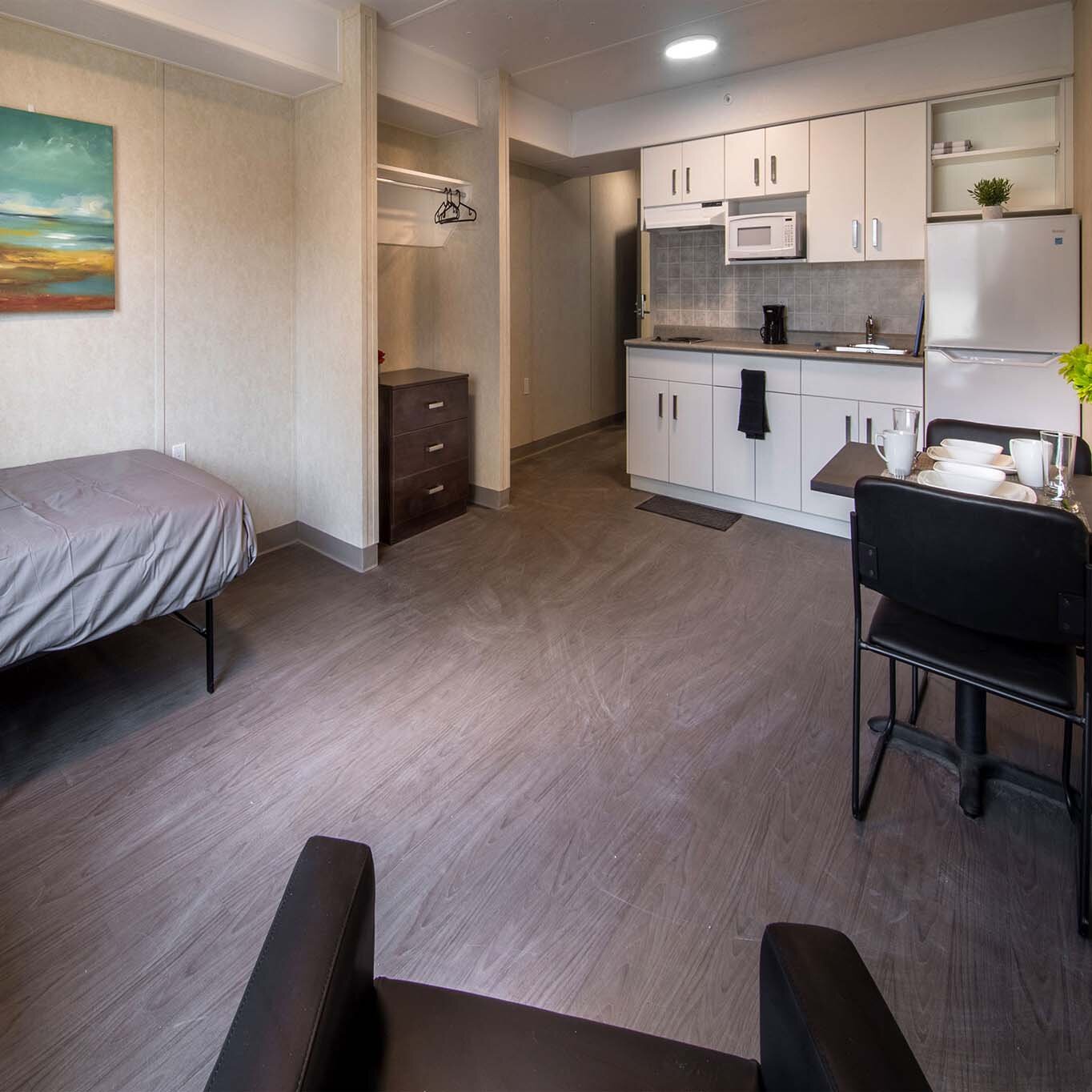

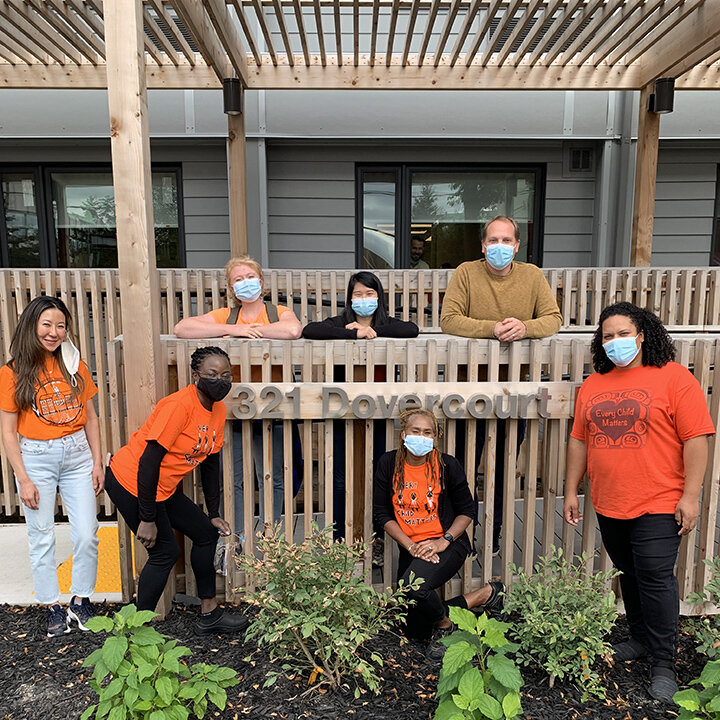


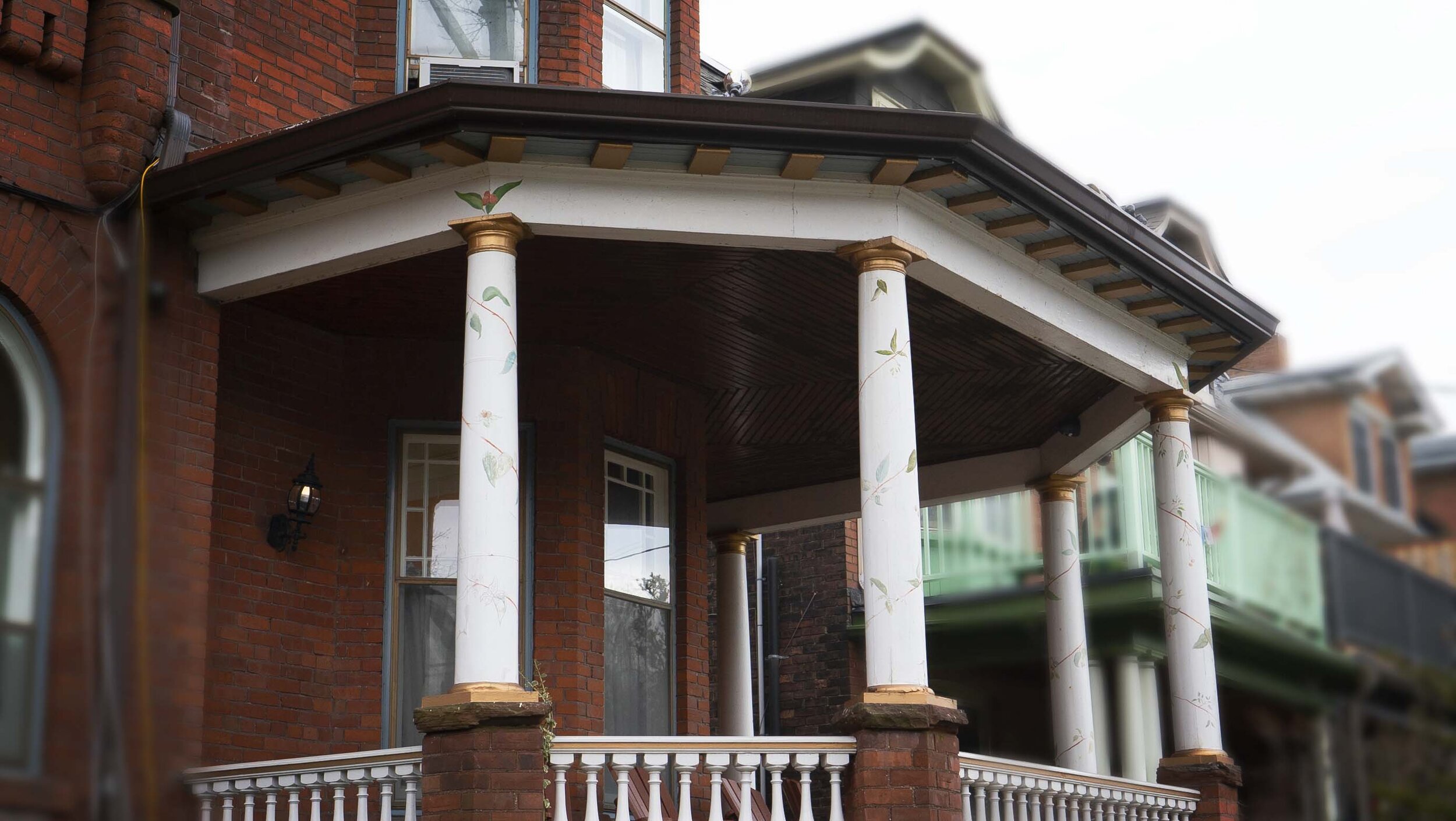
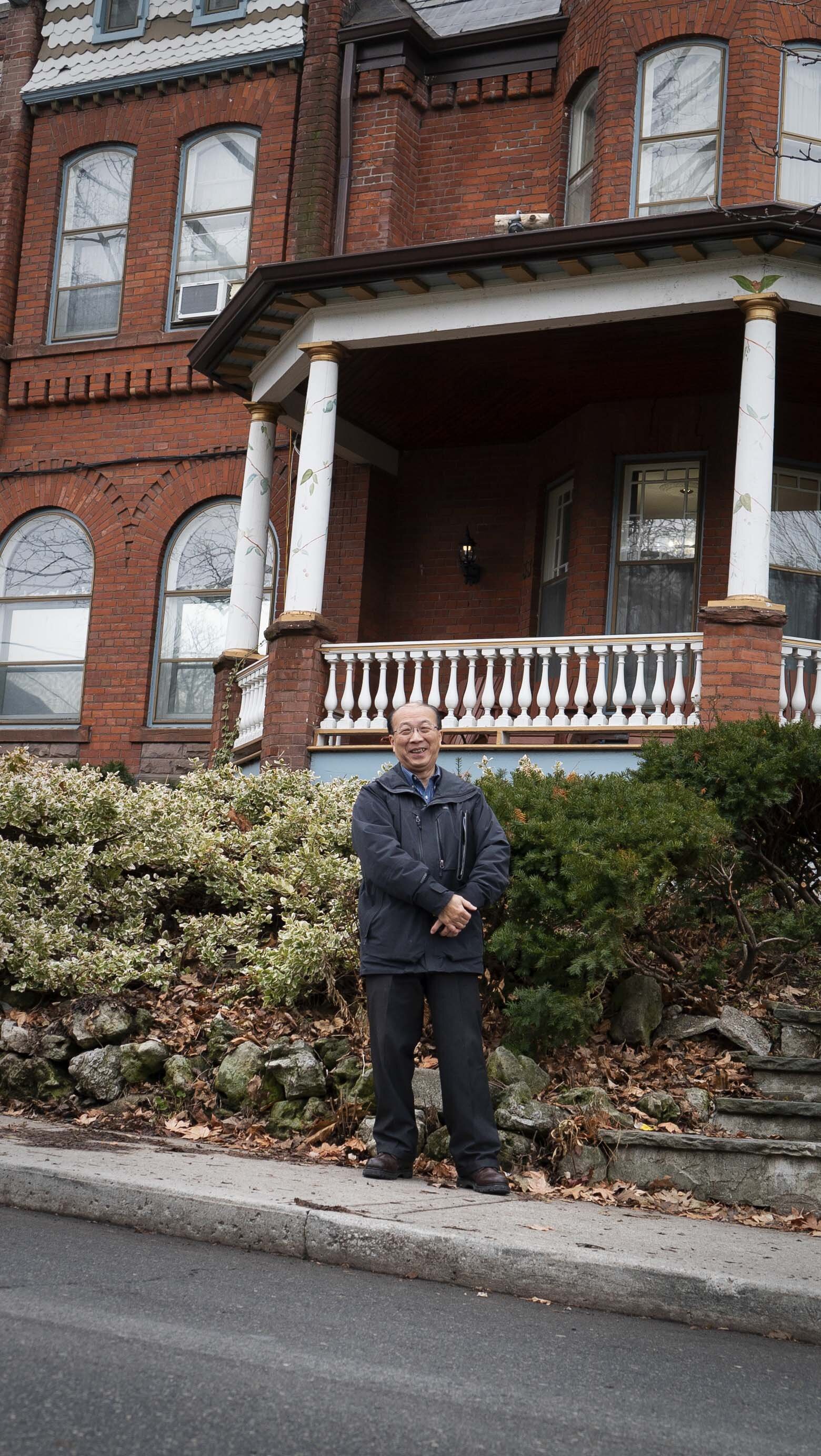
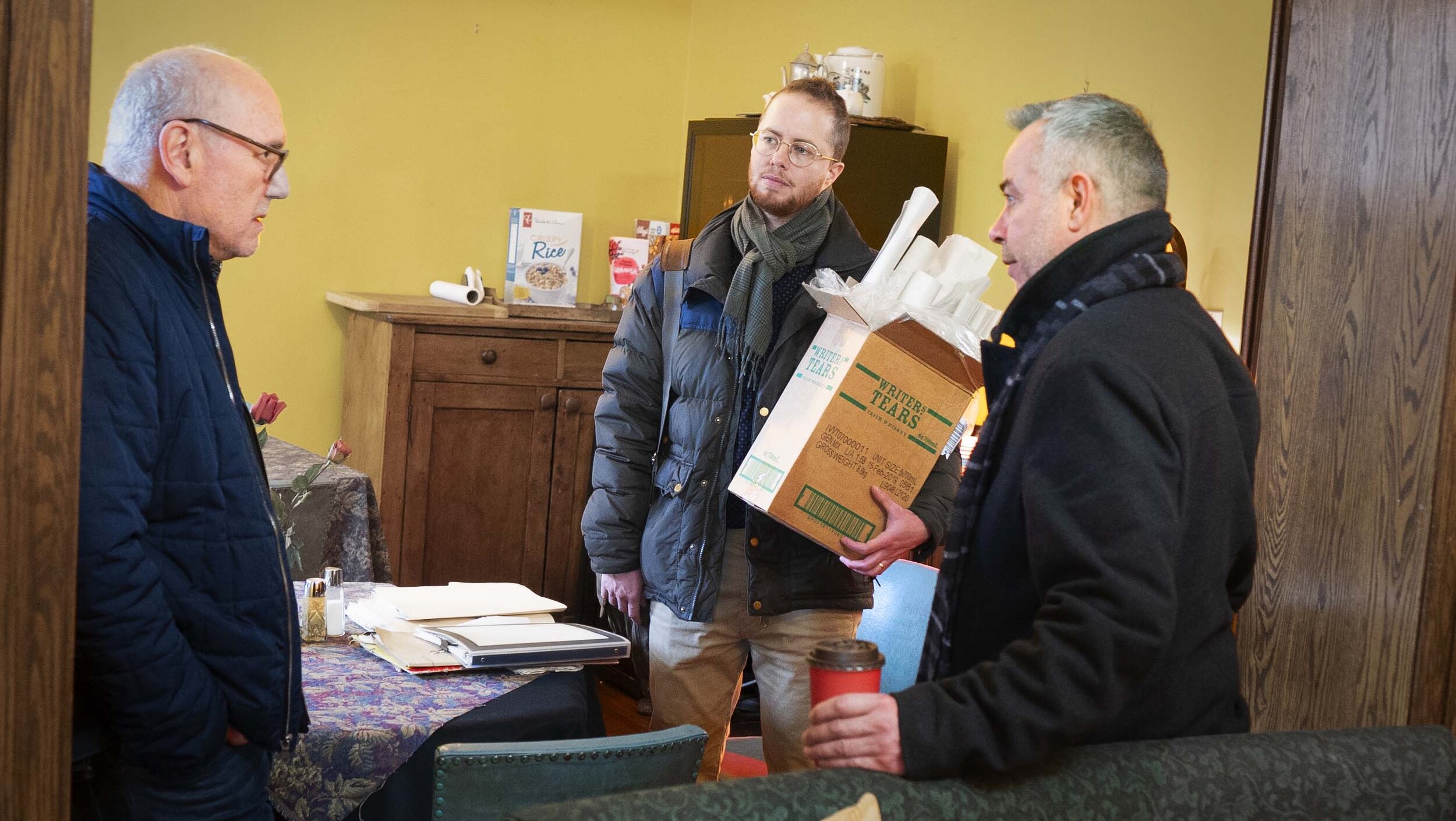



![AdobeStock_254358081 [COTA].png](https://images.squarespace-cdn.com/content/v1/5935632c29687f39e634365b/1633450185542-RDEB79Z410UTQX8VWY5N/AdobeStock_254358081+%5BCOTA%5D.png)










